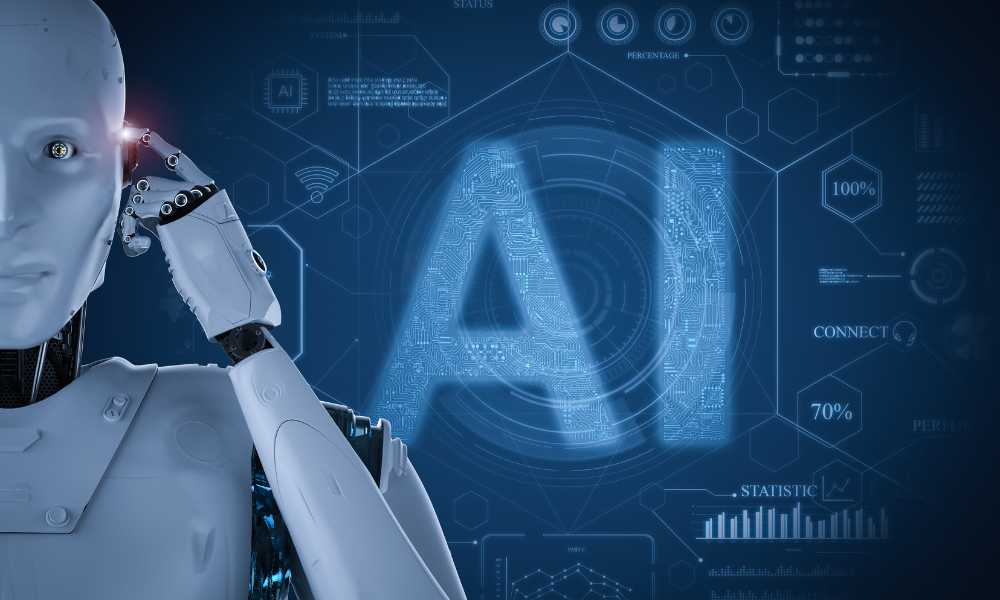One industry that continues to grow due to new technology developments in healthcare. Despite the massive burden the epidemic, the ongoing rise in diseases, and the population explosion have placed on the medical industry; specialists are successfully addressing the problems.
The fields of healthcare and medicine have been transformed by artificial intelligence (AI) and machine learning (ML). With these technologies, medical personnel can better analyze massive volumes of patient data and make accurate predictions, diagnoses, and treatment suggestions.
According to experts, healthcare is one of the industries that will be most impacted in the upcoming years. AI and ML are the healthcare of the future. In this post, we’ll look at a few potential uses for AI and ML in the field of medicine and healthcare in the future.
Using Medical Imaging to Improve Diagnosis
The subject of medical imaging is one of the most encouraging uses of ML in healthcare. Designing diagnostic tools that can be trained to recognize and diagnose medical diseases by examining medical pictures such as X-rays, CT scans, and MRIs is possible with AI algorithms and machine learning.
This can aid medical practitioners in making simple, accurate, and speedier diagnoses of various ailments, including brain disorders, cancer, gastrointestinal problems, and heart-related concerns. By examining medical photos, these AI systems can similarly aid in the early diagnosis of diseases. This lowers the risk of sickness and aids doctors in providing timely care.
Drug Development & Discovery
Numerous diseases have emerged in the modern day due to the changes in our lifestyles. Life-threatening illnesses are emerging more frequently. For instance, COVID-19 variations have rapidly risen after the virus’s emergence in 2019. Drug discovery and development have become incredibly important due to the fast-paced rise of diseases.
In medication research and discovery, AI and ML have a significant role. Drug discovery and development is a complicated process that depends on many variables and vast amounts of historical data. When analyzing massive volumes of data on the molecular structure of pharmaceuticals, AI systems can be of great use.
Machine learning (ML) can accelerate and enhance this process by providing data-driven tools with thorough and high-quality research. This can aid in the discovery of novel medications and the creation of patient-specific treatments that are more efficient and individualized. AI can also foresee potential medicinal side effects, enhancing patient safety.
Optimum Clinical Trial Design
Clinical trials examine the effectiveness of novel medical interventions in human subjects. For instance, while COVID-19 vaccines were being developed, clinical studies were conducted on several individuals.
Clinical trials can be made more effective and efficient with AI and ML. We are all aware of how powerful AI algorithms are for data analysis. Data from clinical trials can be analyzed using this feature of AI. Researchers can use this data to find patterns and trends that will help them design and conduct their trials more effectively.
Improved clinical trial record management methods can be created using machine learning, saving time and money. Additionally, it promotes the rapid and efficient development of new medications and therapies.
Automating the Duties of Medical Professionals and Clinic Staff
Future AI and ML applications could include enhancing healthcare services’ effectiveness and performance. Medical personnel’s repetitive chores, like taking patients’ blood pressure and other measurements, can be readily automated by AI. This will help medical personnel do their duties more effectively and increase the medical system’s overall effectiveness while lowering expenses.
Healthcare systems that are AI and machine learning enabled are the future. These health systems will be referred to as truly intelligent and smart.
Improved and Personalized Care
By giving patients more individualized and appropriate care, AI and ML can be utilized to enhance the whole medical experience. For instance, AI-powered virtual assistants can continuously monitor patients’ health and take appropriate action in response to the inputs. AI-powered solutions can offer patients more accurate and timely diagnoses and therapy recommendations.
These tools can quickly evaluate patient data to pinpoint patients who are most at risk of contracting specific diseases and to offer them individualized care and treatment. This boosts the effectiveness of healthcare systems.
For instance, the Singaporean government uses AI and machine learning to monitor the health of those who are pre-diabetic. The government collected data on about five million of its inhabitants to identify those who are pre-diabetic. Each day, these patients receive individualized guidance on improving their health and controlling their blood sugar. It has been quite successful at preventing participants from progressing from pre-diabetes to a person with diabetes with this highly tailored, data-driven counsel.
Operative Robots
The future belongs to surgical robots. These robots, first authorized in the USA in 2000, help surgeons see more clearly and perform accurate, minimally invasive incisions on injuries. Gynecologic surgery, prostate surgery, and head and neck surgery are prominent surgical systems that use robots.
Usage in Administration
The administrative side of healthcare needs to pay more attention to the usage of AI. The reports show that the average US nurse spends 25% of their working hours on administrative and regulatory tasks. While AI handles the regulatory and administrative tasks, this time can be used more productively. Clinical documentation, claims to process, and medical records administration are just a few administrative duties that can be automated using robotic process automation (RPA).
Conclusion
In conclusion, by enhancing the precision of diagnoses, the effectiveness of clinical trials, and the provision of healthcare services, Artificial intelligence and ML can potentially change the healthcare and medical industry. These innovations can lower expenses, increase efficiency, and give patients more convenient and individualized care. The development and application of AI and ML in healthcare must be constrained by ethical considerations to protect patient data privacy and security, as with any new technology.
Parveen K. Tomar, an American Adobe AEM Architect, wrote and edited this article. You may adhere to him on LinkedIn.


